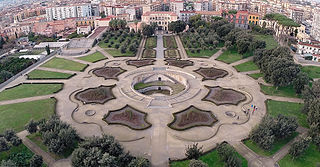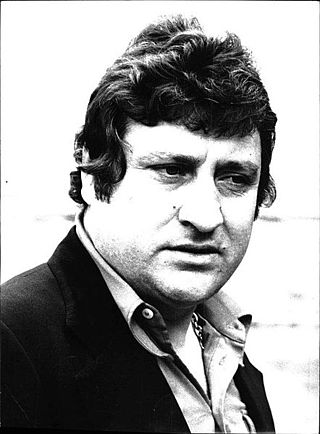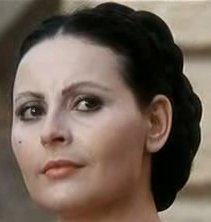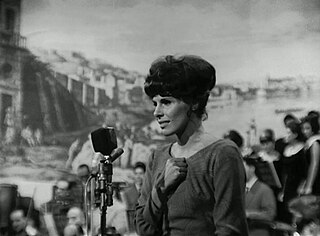
Enrique Omar Sívori was an Italian-Argentine football player and manager who played as a forward. At club level, he is known for his successful time with Italian side Juventus during the late 1950s and early 1960s, where he won three Serie A titles among other trophies; he also played for River Plate in Argentina and Napoli in Italy.

San Giorgio a Cremano is a primarily residential town and comune in the Metropolitan City of Naples, in Italy. It is located on the foothills of Mount Vesuvius to the west of the volcano, and is six kilometres to the south east of the centre of Naples. Most parts of the municipality command views of Mount Vesuvius, Mount Somma and the Bay of Naples.

Ernesto de Martino was an Italian anthropologist, philosopher and historian of religions. He studied with Benedetto Croce and Adolfo Omodeo, and did field research with Diego Carpitella into the funeral rituals of Lucania and tarantism.
Canzone napoletana, sometimes referred to as Neapolitan song, is a generic term for a traditional form of music sung in the Neapolitan language, ordinarily for the male voice singing solo, although well represented by female soloists as well, and expressed in familiar genres such as the love song and serenade. Many of the songs are about the nostalgic longing for Naples as it once was. The genre consists of a large body of composed popular music—such songs as "’O sole mio"; "Torna a Surriento"; "Funiculì, Funiculà"; "Santa Lucia" and others.

Danilo Rea is an Italian jazz pianist. He is a graduate of the Santa Cecilia music conservatory in Rome. He made his debut with the "Trio di Roma" in 1975.

Mario Merola was an Italian singer and actor, most prominently known for having rejuvenated the traditional popular Neapolitan melodrama known as the sceneggiata.
Louis Siciliano is a Jazz and World-Music composer, piano and synth performer, sound engineer and music producer.

Vincenzo "Enzo" Avitabile is an Italian saxophonist, composer and singer-songwriter. He plays a fusion of world music and jazz fusion music, rooted in Neapolitan traditions and characteristic dialect.

The Four Days of Naples was an uprising in Naples, Italy, against Nazi German occupation forces from September 27 to September 30, 1943, immediately prior to the arrival of Allied forces in Naples on October 1 during World War II.

Marcello Vitale is a performer and recording artist on the chitarra battente and baroque guitar, as well as a composer and a teacher of these instruments.

Angela Luce is an Italian film actress and singer of Neapolitan song. She has appeared in 80 films since 1958. She was born in Naples, Italy.
The Scissionisti di Secondigliano or Amato-Pagano clan is a Camorra clan from the Secondigliano district of Naples, headed by Raffaele Amato and Cesare Pagano. They are also known as "Spagnoli" (Spaniards) because of their strong presence in Spain, particularly in Costa del Sol and Barcelona.
Bernadette Manca di Nissa is an Italian operatic contralto who has sung leading roles in the principal opera houses of Italy as well as internationally. She has appeared at La Scala in Milan, La Fenice in Venice, Teatro San Carlo in Naples, and the Maggio Musicale Fiorentino in Florence as well as at the Royal Opera House, Covent Garden, Gran Teatre del Liceu in Barcelona, Lyric Opera of Chicago, Festival of Salzburg, Matsumoto Festival, NHK in Tokyo, Sao Carlos Theater in Lisboa etc.

Agostino Capozzi, known professionally as Mario Trevi, is an Italian singer and actor.

Enzo Gragnaniello is an Italian singer-songwriter and composer.

Fiorenza Calogero is an Italian world music singer and actress from Naples, Italy.

The Festival della Canzone Napoletana, commonly known as the Festival di Napoli, is a Neapolitan song contest. The first edition was held in 1952 and the last in 2004. From 1952 to 1970 the show was broadcast on RAI and from 1998 to 2004, in a differently spirited version, by Rete 4.

Gaetano "James" Senese is an Italian saxophonist, composer, and singer-songwriter.
Pierre d'Angicourt, in French Pierre de Angicourt, in Latin Petrus de Angicuria was a French architect, for about thirty years at the service of Angevin kings of the Kingdom of Naples during the second half of the thirteenth century.
Enzo Pulcrano was an Italian actor and writer active in the 1970s and known for Rulers of the City (1976), La Banda Vallanzasca (1977) and A Pugni Nudi (1974), in which he received a writing credit. He was born on 31 May 1943 in Acerra, Italy, near Naples.














